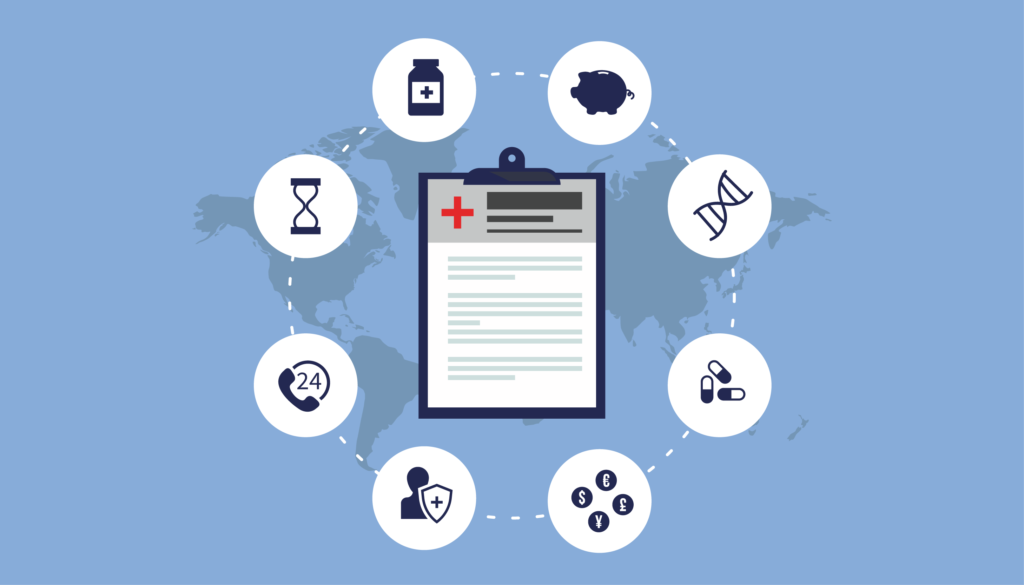The use of clinical documentation is quite widespread since it helps in facilitating inter-provider communication and also allows healthcare institutions to mechanize different decisions. It also helps in the creation of registry tasks that allow the public health agencies to research and manage the larger amount of patient population in a more efficient manner.
What Is Clinical Documentation?

Clinical documentation refers to the process of creating an analog or digital record containing all the necessary details of a patient’s medical treatment. Healthcare institutes all around the globe are understanding the importance of organizing their crucial data leading to an affirmative patient experience. For the patients to experience good and successful service from their hospitals, proper clinical documentation is the key.
It is of utmost importance that these clinical documents be free of any errors and also contain all of the required information (such as the specific treatments given to the patients). These documentations are either in a digital or a paper format that contains X-rays, monitoring records, MRI scans, electrocardiograms, so on and so forth.
When it comes to creating longitudinal patient records otherwise known as LERPs, clinical documentation is the way to go. Not only does it include all of the essential healthcare information from all of the different sources but it is also quite efficient in doing so.
The benefits of Clinical Documentation Integrity (CDI) have gained quite the momentum and rightfully so, the premise of clinical documentation is quite straightforward. It engages the clinicians in order to improve upon the medical records.
Benefits Of Clinical Documentation Improvement
Coding and billing staff in hospitals tend to make use of clinical documentation when it comes to evaluating claims. To make sure that there are no setbacks in a patient’s documentation, the majority of these hospitals hire CDI specialists also known as clinical documentation improvement specialists. These specialists ensure to review the clinical documentation of patients and ensure that it retains its comprehensive manner.
In the US, coding and billing departments rely heavily on clinical documentation integrity in order to improve upon the precision and validity of the clinical documents. They also help in easing the transition when it comes to the ICD-10 coding.
There are several benefits that you can get from clinical documentation improvement. Some of them are as follows:
1. Reduction in claim denials
Insurance companies can reject the request of a patient when it comes to health care coverage for a number of different reasons. Claims that tend to be indecipherable, do not have enough information, have not been filed timely, or do not even contain specific information can make insurance companies refuse health coverage for patients. It is through the proper utilization of clinical documentation improvement (CDI) that claims can be completed in a thorough manner, get filed on time, and are easily decipherable.
2. Decreased amount of doctor’s queries
Doctors from an early on understand that their documentation along with their use of language affects the other departments such as quality data and reimbursements. Coders have the responsibility of reviewing the notes of the doctors when it comes to each patient and assigning the proper ICD (International Classification of Diseases) codes along with CPT (Current Procedural Terminology).
If in any case it is seen that the documents of the patient are incomplete, unreliable, illegible, or conflicting in any way coders tend to contact the doctors in order to clarify the documentation. When the CDI assistance is professional in nature it helps to lessen the clinical documentation mistakes, illegibility, and incompletion.
3. Improvement in Patient Care
Depending on the number of staff that there is at hand, opting to implement Clinical Documentation Improvement can put you in a dilemma. However, the decision to impose CDI services that are professional in nature helps you to focus on achieving error-free documentation.
Much proficient Clinical documentation improvement (CDI) services help in improving the patient records and also make sure that the patient data is henceforth reflecting the correct procedures and diagnosis that has been performed.
4. Error-free coding
The clinical documentation improvement (CDI) program helps medical professionals to input the correct information and have a proper record of all the relevant patient information. This, later on, helps in smoothing out the process of healthcare for the other medical providers. Medical coders therefore can conduct medical reviews of all the patient documents that are complete thereby assigning the required codes for each of them.
5. Better communication
When the information of each of the patients gets tracked and recorded in a proper manner it provides for an overall smoother healthcare experience for not only the patient but also every individual who has access to the records of the patient’s health. The implementation of CDI allows the billing company and the healthcare provider to have access to the same information throughout.
What is the Purpose of Clinical Documentation Improvement?

The purpose of CDI (Clinical Documentation Improvement) is widely acknowledged because of the benefits it provides. It not only improves the healthcare records through an enhancement of data quality and patient outcomes but also leads to faultless reimbursements. The majority of the medical institutions-initiated CDI programs to respond to the start of the Diagnosis Related Group. Doctors experience the request of proper patient documents to go with the specific ICD codes thereby enhancing the data collection procedure and improving the hospital reimbursements.
It has been through proper tracking and collection of data that has led to the expansion of the CDI programs. Even though historically speaking, CDI has always been a program that was based on hospitals, its use has been more frequent in the cent times. The impact of Clinical Documentation Improvement is defined as consistency, completeness, accuracy, and organization of all the medical records that reflect the clinical judgment of the doctor along with the medical decisions.
Looking at it from the reimbursement point of view, a CDI program effectively helps in improving appeals and also leads to the reductions of the denials. Clinically speaking, it helps in an overall meaningful patient data and information recording.
If you are in search of a company that can help you with revenue cycle management and medical billing, Synergy HCLS can be a reliable option for you. In the arena of outsourcing medical billing services, they have a great track record.






